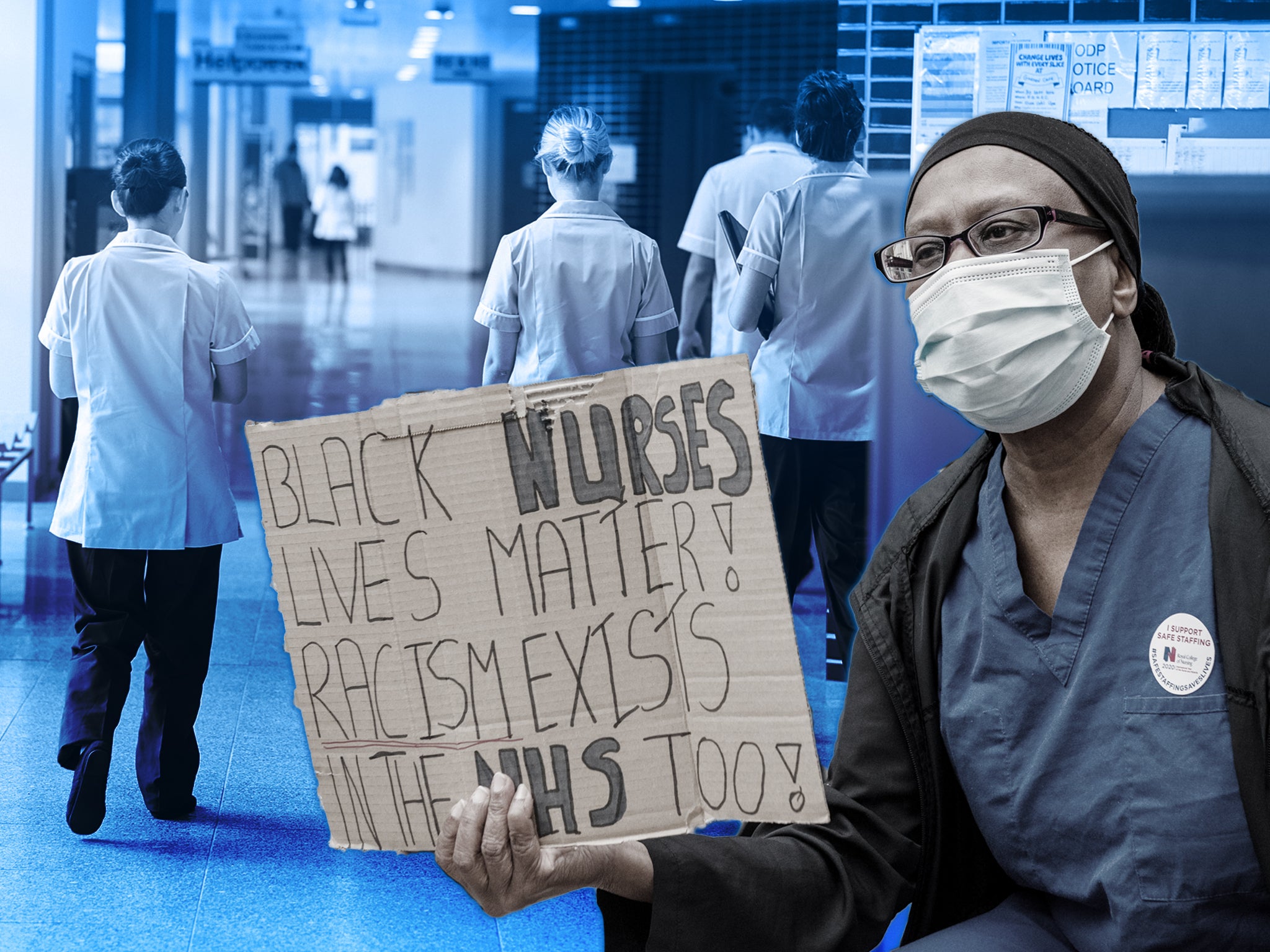New racism targets introduced for hospitals just as NHS scraps top race roles
‘If NHS England don’t have a dedicated lead in tackling racism, what’s the point of a plan, and who holds systems to account?’ a source said

The NHS is to bring in new racial equality targets, but insiders fear hospital trusts will not be held to account because specialist roles set up to tackle racism are facing the axe.
A leaked document has revealed that NHS England will require trusts to gather data on how diverse their hospital hiring panels are, and they will be measured on the rates of General Medical Council (GMC) misconduct referrals of Black and minority ethnic doctors compared with those of white staff.
The new strategy, seen by The Independent, has been signed up to by NHS England, the GMC, the British Medical Association and the Royal College of Medicine following warnings that Black and minority ethnic doctors have a “poorer” experience than their white colleagues.
However, insiders have warned that the NHS is “watering down” its race agenda and will fail to hold trusts to account if race-focused roles are merged into single roles that also cover gender and disability.
Overall, the equality and diversity department within the NHS is being cut from around 50 to 30 roles to cut costs, The Independent has learnt.
The news comes after The Independent revealed that the NHS had failed to improve on “shocking” levels of racism among staff, with one in three workers saying they had faced discrimination or bullying.
Insiders told The Independent that they fear the move to cut race-specific roles will mean a loss of accountability for the new targets.
Last month, The Independent reported that internal NHS surveys showed that levels of bullying and harassment of minority ethnic workers had not improved over the past five years, with almost 30 per cent saying they had been targeted in the past year compared with 20 per cent of white staff.
One NHS source told The Independent: “If NHS England don’t have a dedicated lead in tackling racism, what’s the point of a plan, and who holds systems to account?
“Making it ‘everyone’s business’ means it’s no one’s business, as no consequences or leadership to challenge failure, and wrapping everything up in one box, [means that] nothing [is] an issue, especially when all the data in the NHS staff survey shows racism to be the biggest problem – and getting worse, too.”
Speaking about the new strategy, they added that it would be a “missed opportunity” if NHS England did not have someone in place to lead its implementation.
Another source said that removing the race equality roles amounted to a “watering down” of the agenda. They added: “There’s a concern that ‘mainstreaming’ doesn’t recognise the specialist knowledge that is required to do these jobs properly.”
However, an NHS spokesperson argued: “Race equality is everyone’s business within NHS England, and this is reinforced in the new structure. Every team is committed to improving equality, diversity and inclusion, and every NHS trust will be required to report data on equality standards – this is important for staff, and evidence also shows that increasing equality standards has a direct impact on better patient care.”
NHS England confirmed that its new chief workforce, education and training officer, Navina Evans, will head up its equality, diversity and inclusion (EDI) teams.
The move comes after the organisation promised to axe 40 per cent of its roles nationally in a bid to reduce costs. NHS England said the reduction in its EDI department was less than 40 per cent.
In a foreword, Charlie Massey, chief executive of the GMC, wrote of the new race strategy: “We’ve long known that the health service is a shining example of diversity but a poor example of inclusion ... all too often, doctors from Black and ethnic minority backgrounds have a poorer experience of medicine than their white colleagues, feeling less supported, less included and less able to prosper.”
He added: “The case for change is irrefutable. Discrimination and disadvantage are not only morally indefensible, they are also a drag on a doctor’s ability to provide the best possible care for their patients.”
Hospitals will be measured on new areas, which also include how international medical graduates are inducted and treated when they begin their roles. The UK’s medical royal colleges will also feed data to the NHS race equality team on their own memberships.
The levels of GMC referrals of minority ethnic doctors are already collected by the regulator; however, this is the first time that trusts will be officially monitored by the NHS.
Subscribe to Independent Premium to bookmark this article
Want to bookmark your favourite articles and stories to read or reference later? Start your Independent Premium subscription today.
Join our commenting forum
Join thought-provoking conversations, follow other Independent readers and see their replies